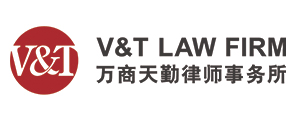Vying for a slice of the future market, auto companies are racing to complete autonomous vehicle tests. But if an enterprise were to skip any critical required tests, it stands to lose more than time and resources
Autonomous driving spells the future of the global automotive sector and, by extension, the entire transportation industry. Unsurprisingly, it is the target of much capital, excitement and speculation. So far, the forerunners in China’s domestic autonomous driving industry have begun demonstration application tests for commercial purposes. Autonomous vehicle testing is subject to regulatory requirements, but if testing violates those requirements, what are the legal consequences?
EXISTING REGULATIONS

Associate
V&T Law Firm
Tel: +86 181 0125 3013
E-mail: guoxing@vtlaw.cn
China had a slightly late start in autonomous driving, with the majority of pioneers engaged in relevant research starting between 2014 and 2017, during which time legislation for autonomous driving was non-existent. As the first batch of domestic companies began to carry out research on autonomous driving technology and testing, local governments in relatively fast-developing regions responded by promulgating local laws to regulate autonomous vehicle testing.
In 2017, Beijing issued the first version of the Implementation Rules for the Administration of Road Tests of Autonomous Vehicles in Beijing (Trial), marking the beginning of local regulation on autonomous vehicle testing, and it has been revised annually since. On 12 November 2020, the Beijing Municipal Commission of Transport, the Beijing Traffic Management Bureau and the Beijing Municipal Bureau of Economy and Information Technology jointly issued the currently effective Implementation Rules for the Administration of Road Tests of Autonomous Vehicles in Beijing (Trial) (4th Edition).
In 2021, Shanghai and Shenzhen respectively issued the Implementation Measures for Tests and Demonstration Applications of Intelligent Connected Vehicles in Shanghai, and the Implementation Rules for the Administration of Road Tests and Demonstration Applications of Intelligent Connected Vehicles in Shenzhen.
Based on the development status of the autonomous driving industry and experience compiled from local legislation, the Ministry of Industry and Information Technology (MIIT), the Ministry of Public Security, and the Ministry of Transport jointly issued the Regulations on the Management of Road Tests and Demonstration Applications of Intelligent Connected Vehicles (Trial) (the test management regulations) in 2021, putting forward the normative requirements for autonomous driving road tests and demonstration application tests, the main contents of which include:
-
- Autonomous vehicle testing includes simulation tests, closed tests, road tests and demonstration application tests;
- Road tests shall be conditioned on completing the simulation test and closed test, and obtaining the entrusted inspection report on the autonomous driving function of the intelligent connected vehicle issued by a third-party testing agency engaged in automobile-related business and recognised by the state or province or city;
- Road tests require application for a temporary vehicle number plate from the traffic management department;
- Demonstration application tests shall be conditioned on completing the road test with a certain length of time or mileage, no traffic violations during the road test, and no traffic accidents for which the road test vehicle is liable; and
- Autonomous vehicle tests exert high requirements for the subjects, autonomous driving system functions, vehicles, drivers, vehicle insurance, and other aspects.
For companies engaged in autonomous driving, what are the consequences if they fail to conduct tests in accordance with the test management regulations and other rules?
NON-COMPLIANCE CONSEQUENCES

Associate
V&T Law Firm
Tel: +86 185 8827 1660
E-mail: songjipeng@vtlaw.cn
China implements an access management system for automobile manufacturers and automobile products, mainly based on the Administrative Measures on Market Access Permission for Road Motor Vehicle Manufacturers and Products. In the context of the continual development of new energy vehicles in recent years, the MIIT issued the Regulations on the Access Management of New Energy Vehicle Manufacturers and Products on 24 July 2020 to regulate the market access of domestic new energy vehicle manufacturers and products.
Regarding the market access of autonomous vehicle manufacturers and products, the MIIT issued the Opinions on Strengthening the Access Management of Intelligent Connected Vehicle Manufacturers and Products (the access management opinions) on 30 July 2021.
Article 7 of the access management opinions states: “It is necessary to strengthen the safety management of products with autonomous driving functions. Enterprises producing automotive products with autonomous driving functions should ensure that automotive products meet at least the following requirements: … (4) Automotive products shall meet the functional safety, expected functional safety, network security and other process assurance requirements, as well as requirements of the simulation tests, closed tests, road tests, network security tests, software upgrading tests and data logging tests to avoid foreseeable and preventable safety accidents under the designed vehicle running conditions.”
In summary, autonomous vehicle manufacturers and products can be qualified for market access and listed in the National Automotive Product Catalogue or the Intelligent Connected Vehicle Product Catalogue in pilot areas only after satisfying a series of tests including simulation tests, closed tests, road tests, network security tests, software upgrading tests and data logging tests.
Regarding closed tests and road tests, the test management regulations and the road test management standards issued by local governments have given clear and explicit requirements. If autonomous vehicles are not tested in accordance with the relevant standards, companies will face significant compliance risks and find it difficult to be listed in the automotive product catalogue, significantly impacting their business potential in a promising sector.
Guo Xing is an associate at V&T Law Firm. She can be contacted on +86 181 0125 3013 or by email at guoxing@vtlaw.cn
Song Jipeng is an associate at V&T Law Firm. He can be contacted on +86 185 8827 1660 or by email at songjipeng@vtlaw.cn

12/F, T1 South Tower, Beijing Kaisa Plaza
86 Jianguo Road, Chaoyang District
Tel: +86 10 8225 5588
Fax: +86 10 8225 5588-8007





















